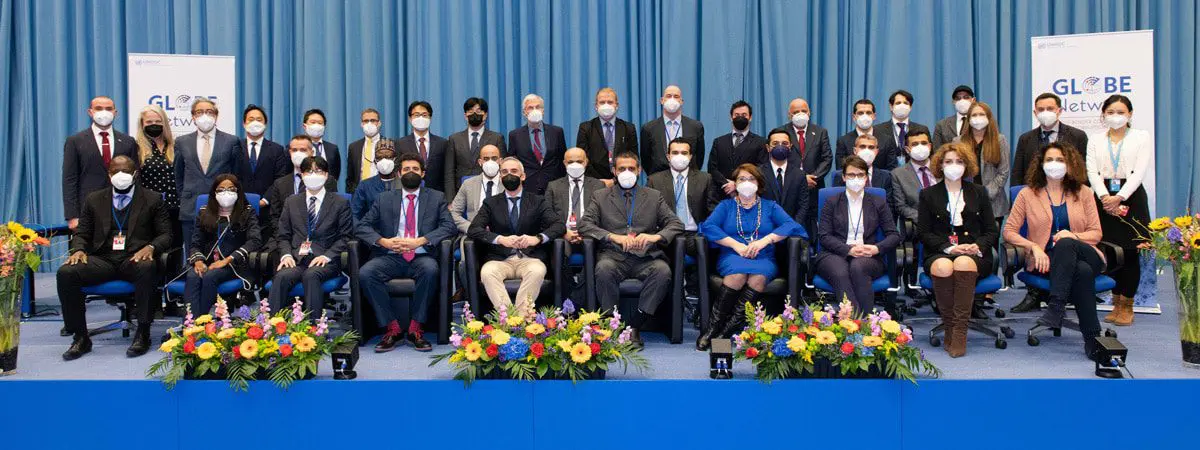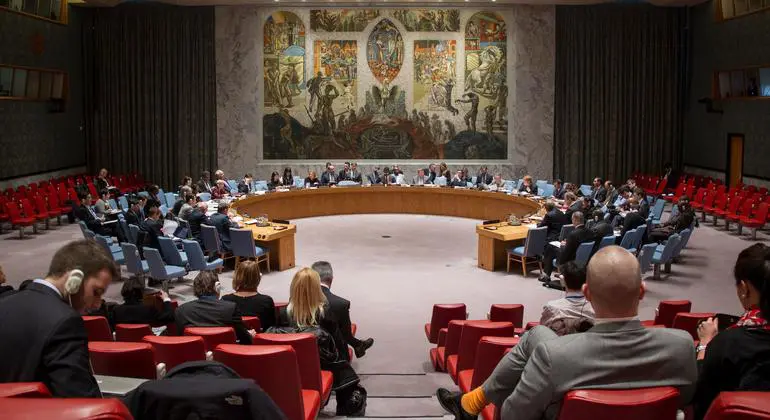19 November 2021 – Members of the GlobE Network gathered in Vienna this week during the first-ever annual meeting of the UN’s newest informal cross-border cooperation mechanism designed exclusively to help countries end large-scale corruption. Launched in June during the UN General Assembly special session against corruption, the Global Operational Network of Anti-Corruption Law Enforcement Authorities – or GlobE – connects frontline anti-corruption law enforcement officials from across the world to share information proactively and informally across borders. Part of UNODC’s overall anti-corruption efforts, the Network is designed to quickly identify criminals and stolen assets and bring the corrupt to justice.
Since being launched just five months prior, membership has grown rapidly with some 78 member authorities from 47 countries now part of the GlobE Network. With this level of participation having been reached, the meeting offered an ideal moment for members to begin the critical work of establishing a governance structure, determining member priorities, and agreeing on a Charter. A Steering Committee was also determined to ensure that the Network’s activities directly reflect the on-the-ground realities of the members themselves. Spain and the Kingdom of Saudi Arabia were selected as the Chair and Vice-Chair of the Network respectively, with authorities from Chile, Mauritius, Mexico, Morocco, Nigeria, North Macedonia, the People’s Republic of China, the Republic of Korea, Romania, the Russian Federation, the State of Palestine, the United States of America, and Zimbabwe chosen as the other members of the Steering Committee.
“The GlobE Network arrives on the world scene at a critical time,” noted Ghada Waly, Executive Director of UNODC which serves as the GlobE Network Secretariat, during the opening session. “The COVID-19 crisis has derailed development progress and worsened corruption, bribery and illicit flows, stealing away resources when we can least afford it.”
Head of the Technical Unit of the Judicial Police in the Spanish Civil Guard, Captain Pedro Garrido Pascal, meanwhile highlighted the importance of an initiative such as this. “Our goal is to work in partnership to disrupt and dismantle the systems that enable the corrupt to steal with impunity,” he said. “Only direct communication and cooperation across borders will help us ensure that high-level, large-scale corruption does not compromise our global efforts to achieve our development goals.” Reflecting this, Spain and its three anti-corruption authorities were the first to join the GlobE Network in July 2021.
During the meeting, the members committed to work with existing international cooperation networks, building upon the efforts of one another to create an agile and inclusive community that empowers all countries to engage in informal cooperation and access resources that will help advance their cases against corruption. They also expressed a commitment towards working closely and encouraging information sharing with the GlobE Network members in tackling corruption.
Byungkook Yoo, Deputy Director of the International Cooperation Division of the Supreme Prosecutors Office in the Republic of Korea, was one of those who spoke on this. “We believe that the GlobE Network is the most comprehensive platform for international cooperation on anti-corruption. It is crucial to work together with other networks to succeed…to make significant improvements on all issues of anti-corruption.”
The aim is to reach universal membership by UN Member States and States parties to the UN Convention against Corruption (UNCAC). Around this. GlobE Network members will have a further opportunity to connect during the ninth session of the Conference of the States Parties to the UNCAC being held in Sharm el-Sheikh, Egypt next month, to further strengthen political resolve and build relationships with their peers through bilateral meetings.






